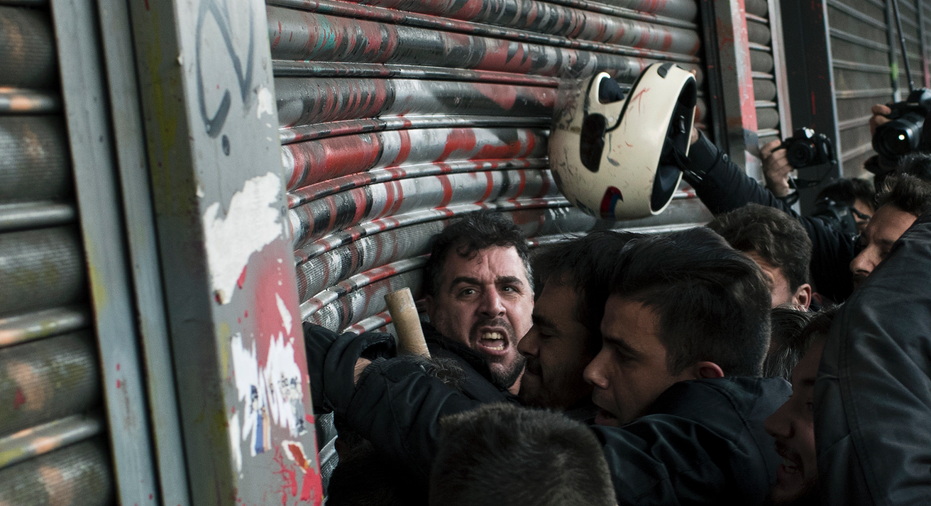Greece: Clashes near PM's office over bailout labor reforms

ATHENS, Greece – Demonstrators broke their way into Greece's Labor Ministry and clashed with riot police outside the prime minister's office Tuesday, in protest against a new agreement between the country and bailout creditors that includes limiting the right to strike.
The labor unions also called a general strike for Dec. 14.
Police fired tear gas outside the office of Prime Minister Alexis Tsipras after protesters forced their way past a cordon and clashed with officers on duty.
Earlier, demonstrators forced open the shuttered entrance of the Labor Ministry on a busy commercial street in the center of the city.
The clashes occurred hours after finance ministers from the 19 eurozone countries backed a provisional agreement on the terms of a late-January bailout disbursement.
Under the provisional agreement, the government also commits to expand the privatization of a state power company and help speed up efforts to clear a huge backlog of banks' soured loans — measures that are both politically unpopular.
Labor reforms are highly controversial in Greece, where unemployment remains over 20 percent and poverty levels have surged over the past few years since the country first required an international financial rescue in 2010.
A legal amendment to toughen strike rules was proposed in parliament as part of unrelated draft legislation late Monday and withdrawn hours later for further consultation.
Tuesday's protest was organized by a union control by the Greek Communist Party, which has led multiple protests against Tsipras' left-led coalition government.
"This government of dirty tricks. It has surprised everyone with its willingness to take instructions from the (bailout creditors)," Communist Party deputy Christos Katsotis said.
Greece's largest labor unions have called a 24-hour strike against the proposed labor reforms on Dec. 14.
"The government has promised to restore labor rights ... but at the same time it is weakening the most fundamental tool of collective action, the right to strike," the General Confederation of Greek Labor, the country's largest union, said.
___
Follow Giannakouris at http://www.twitter.com/PGiannakouris and Gatopoulos at http://www.twitter.com/dgatopoulos



















